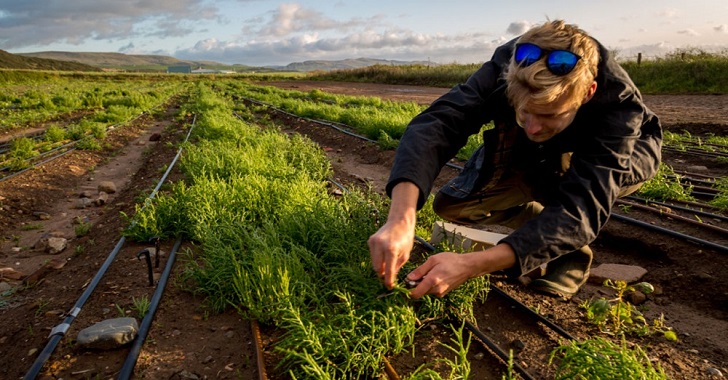As the global population continues to increase, so does the demand for food production. With limited freshwater resources, finding innovative and sustainable methods for agriculture becomes essential. One promising approach gaining attention is growing vegetables in seawater.
By utilizing the abundant seawater resource, this technique offers numerous benefits that can contribute to a more sustainable and resilient future. This article will delve into the advantages of cultivating vegetables in seawater and explore how it can positively impact our environment, agriculture, and food security.
Reduced Pressure on Freshwater Resources:
Growing vegetables in seawater significantly reduces the strain on freshwater supplies. Traditional agriculture relies heavily on freshwater irrigation, increasing competition for limited resources. By utilizing seawater, a vast and renewable resource, we can alleviate the pressure on freshwater supplies and redirect them for other essential purposes, such as drinking water and ecosystem preservation.

Ben Mack/ Pexels | Growing vegetables in seawater is an innovative idea that helps preserve freshwater
Enhanced Sustainability and Environmental Benefits:
Seawater agriculture offers a sustainable alternative that minimizes environmental impacts. By utilizing seawater for irrigation, we can avoid the depletion and contamination of freshwater sources caused by agricultural practices.
Additionally, seawater contains essential nutrients that can naturally enrich the soil, reducing the need for synthetic fertilizers. This approach helps to maintain soil fertility while minimizing the release of harmful chemicals into the environment.
Tolerance to Salinity and Drought:
Certain vegetable crops can tolerate high salinity levels in seawater. These crops, known as halophytes, have evolved to thrive in saline environments. Cultivating halophytes can transform vast coastal areas into productive agricultural zones. This adaptation to salinity also makes these crops more resilient to drought conditions, allowing for continued cultivation even in arid regions.

Seawater Solutions / Goodnet| Halophytes thrive in seawater as they need saline environmental conditions
Increased Crop Yield and Nutritional Value:
Studies have shown that growing seawater vegetables can increase crop yield and nutritional value. Seawater contains essential minerals and trace elements that benefit plant growth and development.
These minerals can enhance the nutrient content of vegetables, making them more nutritious for human consumption. Additionally, the controlled salinity levels in seawater irrigation can improve plant water-use efficiency, leading to healthier and more productive crops.
Potential Economic Opportunities:
The cultivation of vegetables in seawater presents exciting economic opportunities. Coastal communities with limited access to freshwater resources can harness the potential of seawater agriculture to diversify their economies and improve livelihoods.

Euro News/ Yahoo | Transforming degraded lands into wetlands using seawater is the future of agriculture.
Seawater farming can create jobs, stimulate local economies, and contribute to food security, especially in regions where traditional agriculture faces challenges due to water scarcity. Growing vegetables in seawater represents a promising and sustainable approach to agriculture.
This technique offers a way forward in addressing global food security challenges by reducing the strain on freshwater resources, enhancing sustainability, and providing environmental benefits. Additionally, the cultivation of halophytes and the potential economic opportunities associated with seawater agriculture further underscore its value.
As we strive for a more resilient and sustainable future, exploring innovative methods like growing vegetables in seawater can contribute to a greener and more food-secure planet.








